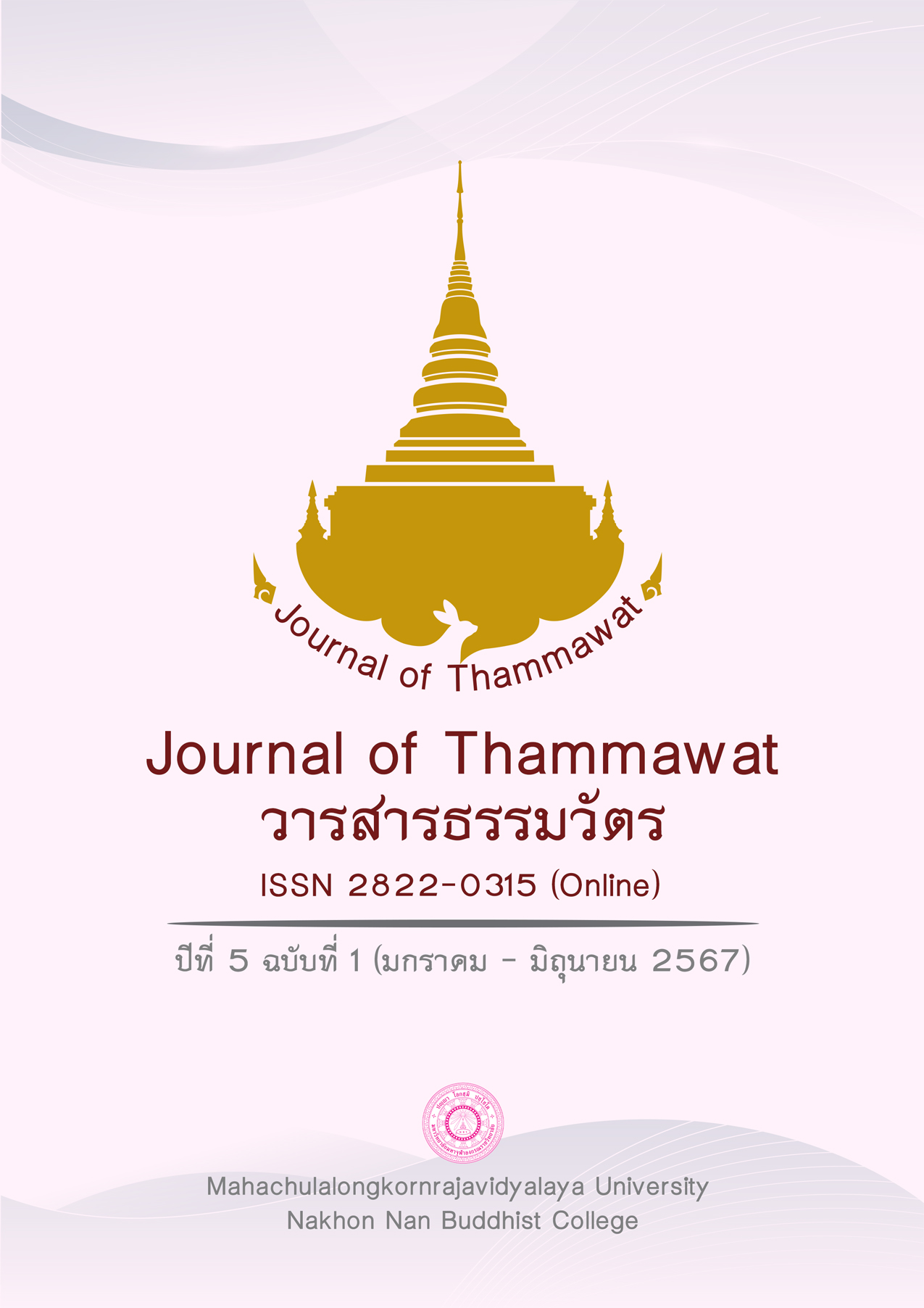Modern management according to Buddhist principles
Main Article Content
Abstract
This academic article aims to study the principles of Buddhism to integrate with modern management. At present, changes in the economy, society, and technology are occurring rapidly and are becoming more complex in organizations. Therefore, the principles of mathematics and digital technology, AI technology, systematic management, and strategic management that were related to each other must be used to increase the efficiency of resource management in the organization. For successful management in an organization, there must be cooperation, unity, and a common goal. Because the world today is a capitalist or consumerist system that seeks profit and competes to be superior to competitors, both in terms of management and development in order to achieve organizational goals, modern management principles had become a management strategy. It emphasizes leaders and to create human relationships with each other by cultivating personal characteristics to the point of being beneficial to society. Organizations that had integrated the principles of Buddhism in line with their organizations in terms of strategic management, human resource management in the organization, and organizational culture in order for the organization's management to be successful.
Article Details

This work is licensed under a Creative Commons Attribution-NonCommercial-NoDerivatives 4.0 International License.
References
ศิริวรรณ เสรีรัตนและคณะ. (2542). องค์การและการจัดการ. กรุงเทพฯ: ดวงกมลสมัย.
สุเทพ พงศ์ศรีวัฒน์. (2550). ภาวะความเป็นผู้นำ. กรุงเทพฯ: บริษัท ส.เอเซียเพรส (1989) จำกัด.
สุรพล สุยะพรม และคณะ. (2555). ทฤษฎีองค์การและการจัดการเชิงพุทธ. กรุงเทพฯ: โรงพิมพ์มหาจุฬาลงกรณราชวิทยาลัย.
Daft, L. (1999). Leadership: Theory and practice. The Dryden Press Harcourt Brace College Pubishers.
Taylor Frederick W. (1998). The Principle of Scientific Management. Norcross GA: Engineering and Management Press.


